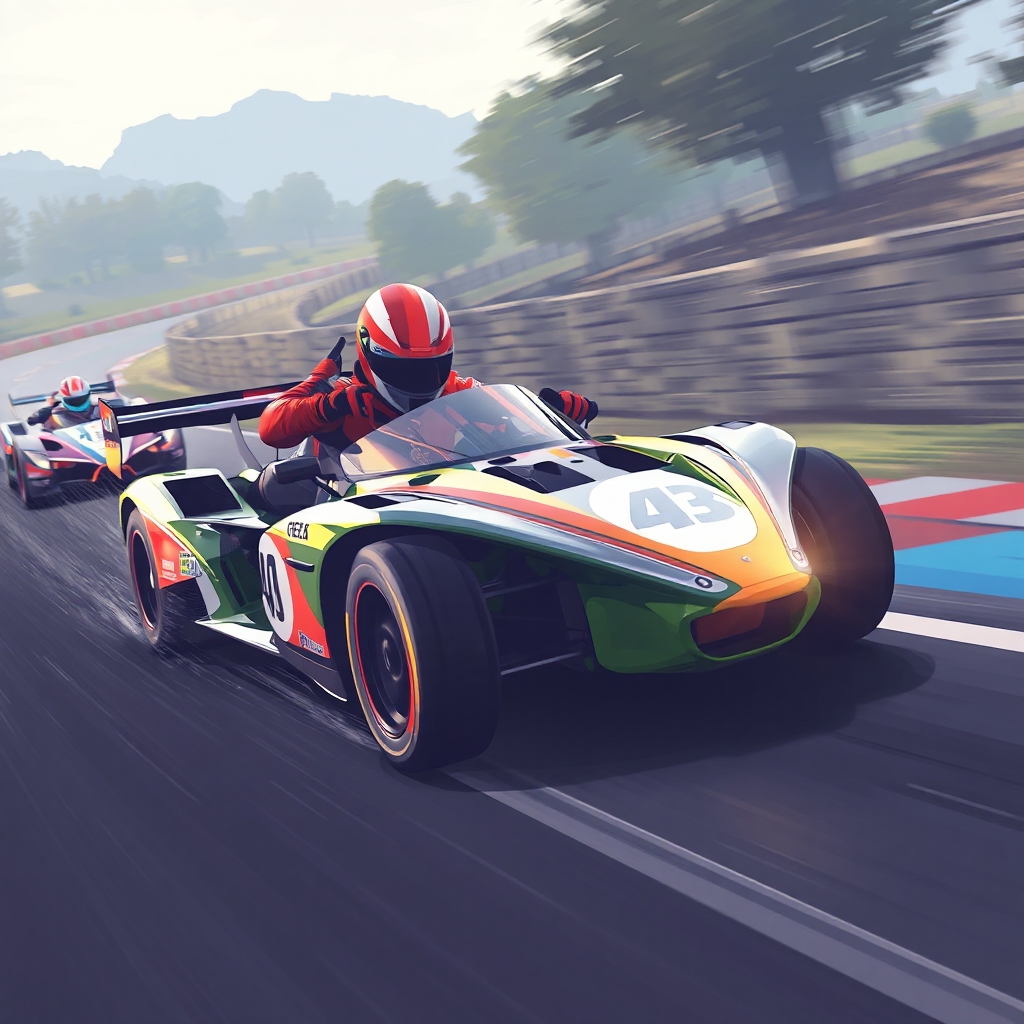Soccer Games
Introduction
Soccer, also known as football in many parts of the world, is the most popular sport globally. It is a game of skill, teamwork, and strategy that captivates millions of fans. The digital world has embraced soccer through video games, allowing players to experience the thrill of the sport virtually. Soccer games have evolved from simple 2D arcade games to highly realistic simulations that replicate real-world physics, player movements, and team strategies.
From managing a soccer club to competing in high-intensity matches, soccer games provide an immersive experience for players of all ages. Whether you’re a casual gamer looking for a quick match or a hardcore player striving to master tactics and controls, there is a soccer game for everyone.
The Evolution of Soccer Games
The history of soccer games dates back to the early days of video gaming. One of the first notable soccer video games was Pele's Soccer, released in 1981 for the Atari 2600. The game featured basic graphics and simple gameplay mechanics but laid the foundation for future soccer simulations.
During the 1990s, gaming technology advanced, leading to the development of more complex and visually appealing soccer games. Titles like FIFA International Soccer (1993) and International Superstar Soccer (1994) introduced better animations, team management options, and more realistic ball physics.
The early 2000s saw a rivalry emerge between FIFA and Pro Evolution Soccer (PES), two franchises that dominated the soccer gaming industry. While FIFA focused on official team licenses and realistic gameplay, PES emphasized fluid mechanics and deeper tactical control. This competition drove innovation, leading to improved graphics, AI, and game modes.
Today, soccer games have reached new heights with hyper-realistic player models, advanced physics engines, and online multiplayer features. Games like FIFA 24 and eFootball (formerly PES) offer immersive career modes, customizable tactics, and even virtual reality experiences. The evolution of soccer games reflects the continuous demand for realism, excitement, and competitive play.
Key Features of Soccer Games
-
Realistic Gameplay and Physics
-
Modern soccer games prioritize realism, incorporating real-world physics for ball movement, player agility, and collisions. Developers use motion capture technology to replicate player movements, making the game feel more authentic.
-
Games like FIFA and eFootball feature realistic passing, shooting, and tackling mechanics, allowing players to execute skill moves and strategic plays.
-
Multiple Game Modes
-
Club and Player Licensing
-
One of the biggest attractions of soccer games is the inclusion of real-life teams, players, and leagues. Official licenses allow games to feature authentic club names, stadiums, and player likenesses.
-
While FIFA has historically held the most official licenses, eFootball has secured exclusive partnerships with clubs like Barcelona and Juventus, providing unique gameplay experiences.
-
Tactical Depth and Team Management
-
Strategy plays a crucial role in soccer games, and modern titles offer detailed tactical customization. Players can adjust formations, player roles, attacking styles, and defensive setups to match their preferred strategy.
-
In career and manager modes, users can handle transfers, scouting, training schedules, and even press conferences, adding depth to the experience.
-
Immersive Commentary and Sound Effects
-
Audio is an essential aspect of soccer games, with realistic crowd chants, stadium ambiance, and commentary enhancing the experience. Games feature professional commentators who react to in-game events dynamically, creating an authentic broadcast-like atmosphere.
-
Enhanced AI and Difficulty Levels
-
AI-controlled teams in modern soccer games adapt to player strategies, making matches more challenging and engaging. Higher difficulty levels require precision in passing, positioning, and defensive play to secure victories.
-
AI teammates also exhibit better decision-making, improving positioning and movement to create realistic match scenarios.
Popular Soccer Games
-
FIFA Series
-
The FIFA franchise, developed by EA Sports, is the best-selling soccer game series of all time. Known for its realistic gameplay, licenses, and game modes, FIFA has been the go-to choice for soccer enthusiasts worldwide.
-
Features like FIFA Ultimate Team (FUT), Volta Football, and career mode keep players engaged with diverse experiences.
-
eFootball (Formerly Pro Evolution Soccer – PES)
-
Developed by Konami, eFootball focuses on player movement and tactical play. While it lacks the extensive licenses of FIFA, it compensates with fluid gameplay mechanics and strategic depth.
-
eFootball has transitioned to a free-to-play model, allowing more players to experience the game without an upfront cost.
-
Football Manager
-
Unlike traditional soccer games, Football Manager emphasizes club management rather than on-field action. Players take control of all aspects of a soccer club, from signing players to developing tactics and managing finances.
-
This game is perfect for those who enjoy the strategic and business side of soccer.
-
Rocket League
Why Soccer Games Are So Popular
-
Global Appeal: Soccer is the most-watched and played sport in the world, making soccer games a natural favorite among fans.
-
Competitive and Multiplayer Options: Online modes allow players to test their skills against friends or rivals worldwide.
-
Realism and Immersion: With detailed player likenesses, stadiums, and commentary, soccer games offer an experience that closely mirrors real-life soccer.
-
Variety of Gameplay Styles: Whether managing a team, competing in tournaments, or playing casual street soccer, these games cater to different preferences.
Challenges in Soccer Games
-
Microtransactions: Many modern soccer games rely heavily on microtransactions, particularly in Ultimate Team modes, where players must spend money to acquire top-tier players.
-
Gameplay Balancing: Developers must constantly adjust gameplay mechanics to ensure fairness, as overpowered tactics or exploits can lead to frustration.
-
Annual Releases: Some players feel that yearly releases of games like FIFA offer minimal improvements, making them question the value of purchasing a new version each year.
The Future of Soccer Games
The future of soccer games looks promising with technological advancements in gaming. Some potential developments include:
-
Virtual Reality (VR) and Augmented Reality (AR): Future soccer games may introduce VR modes, allowing players to experience matches from a first-person perspective.
-
Advanced AI and Realistic Physics: Improved AI behavior and physics engines will make matches feel even more authentic.
-
Cross-Platform Play: More games may allow players on different consoles and PCs to compete against each other, enhancing online competition.
-
Blockchain and NFTs: Some developers are exploring blockchain technology for in-game assets, allowing players to own unique digital collectibles.
Conclusion
Soccer games have grown into a highly immersive and competitive gaming genre, offering players the chance to experience the sport in various ways. Whether through realistic simulations like FIFA, tactical management in Football Manager, or the unique twist of Rocket League, soccer games continue to evolve and attract millions of players worldwide. As technology advances, the future of soccer gaming looks even more exciting, promising deeper immersion, better graphics, and innovative gameplay experiences.


















